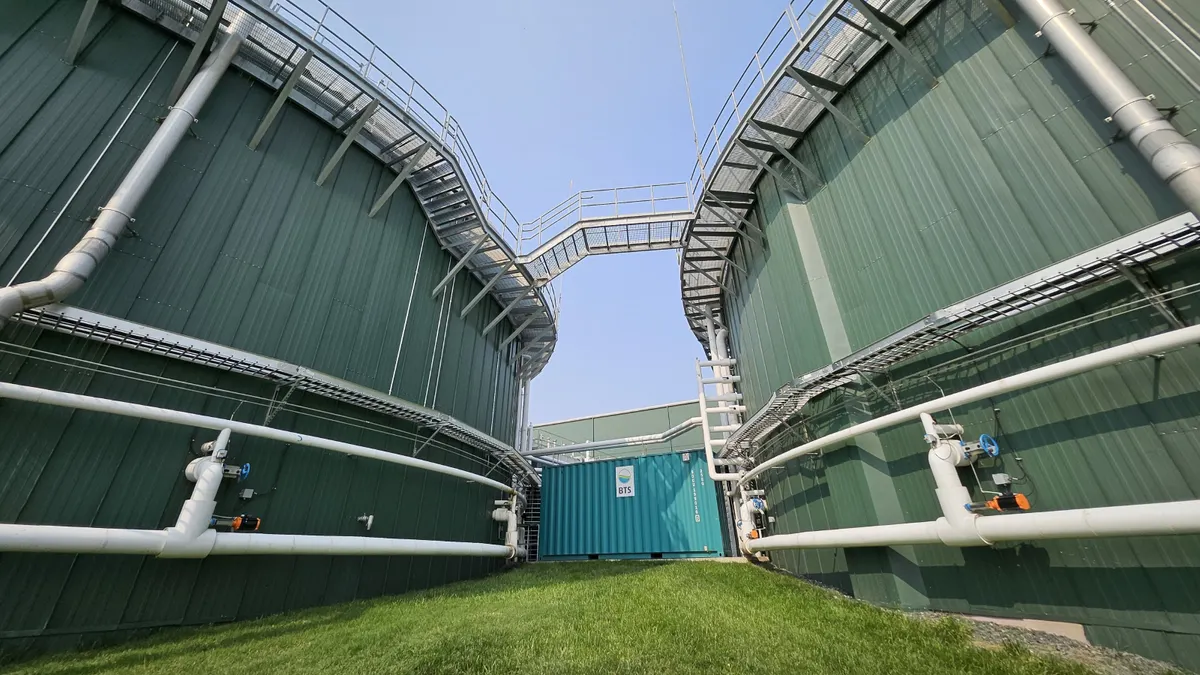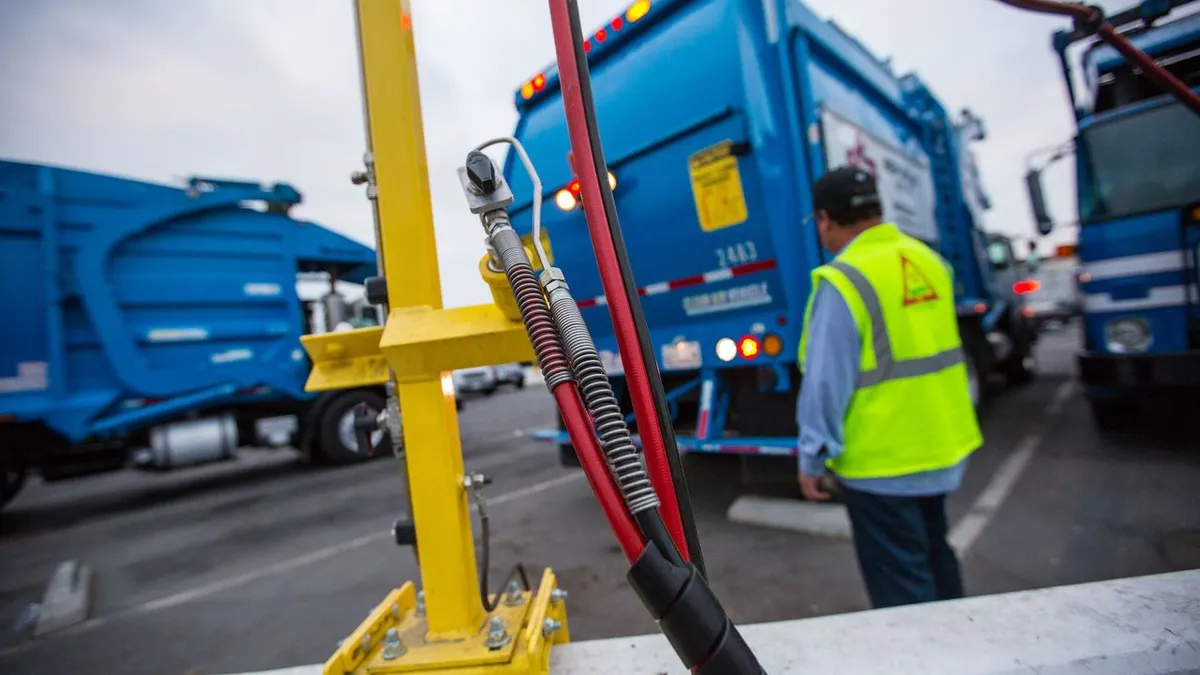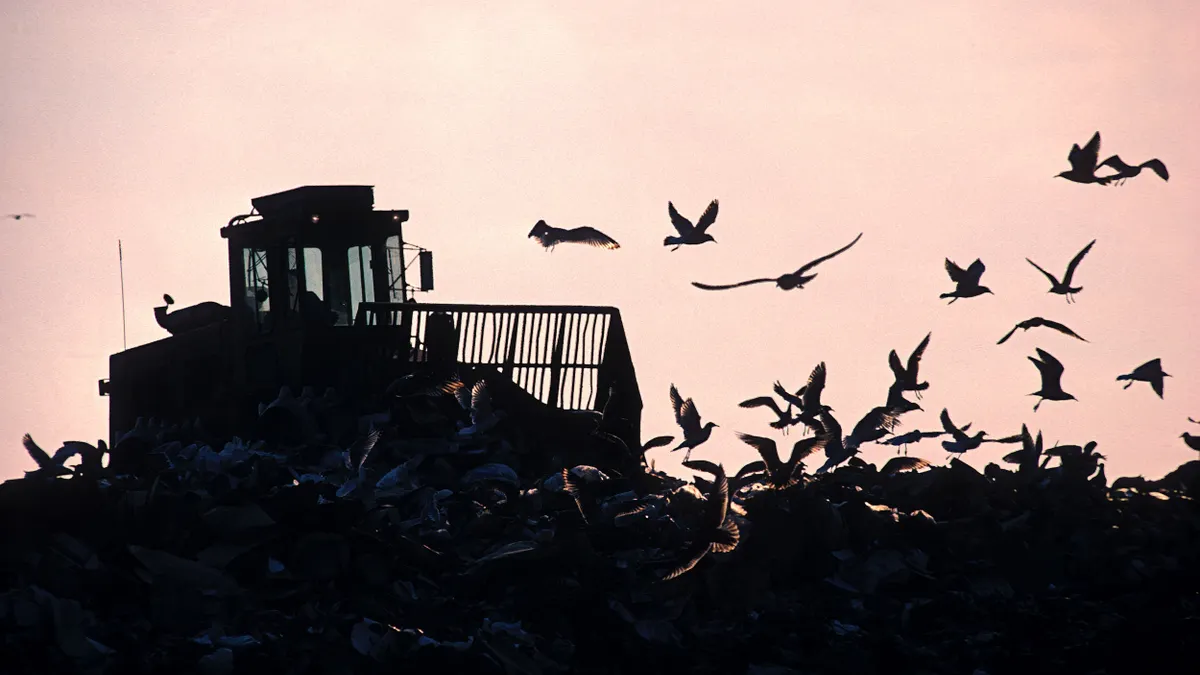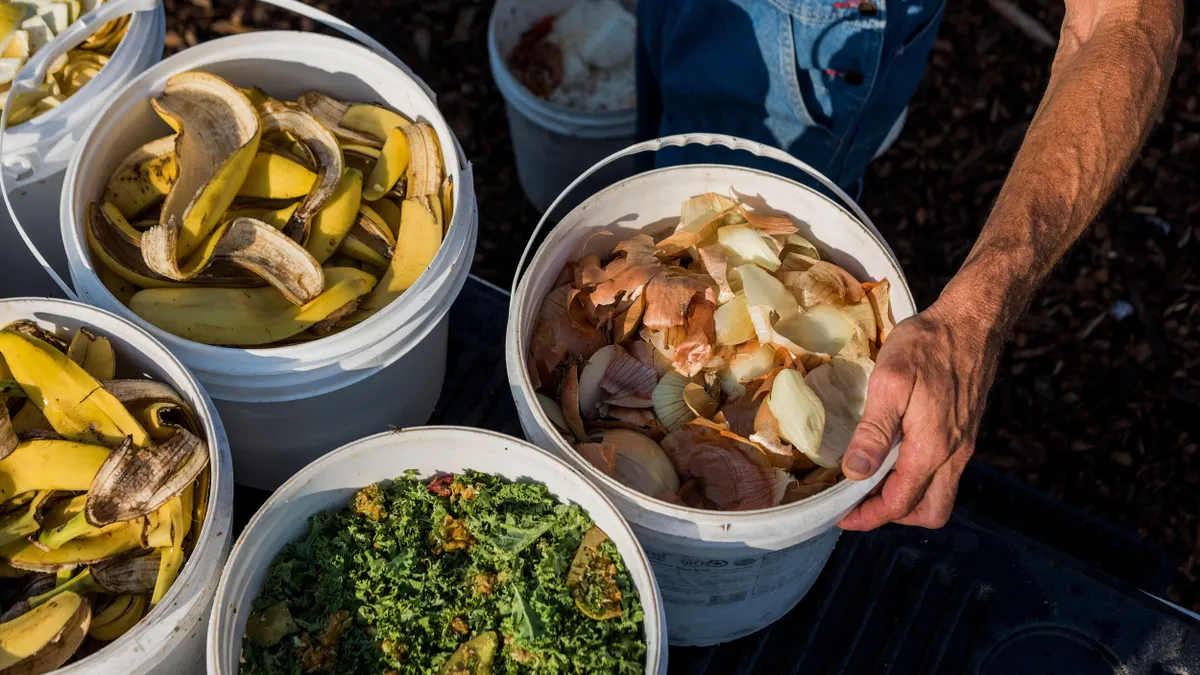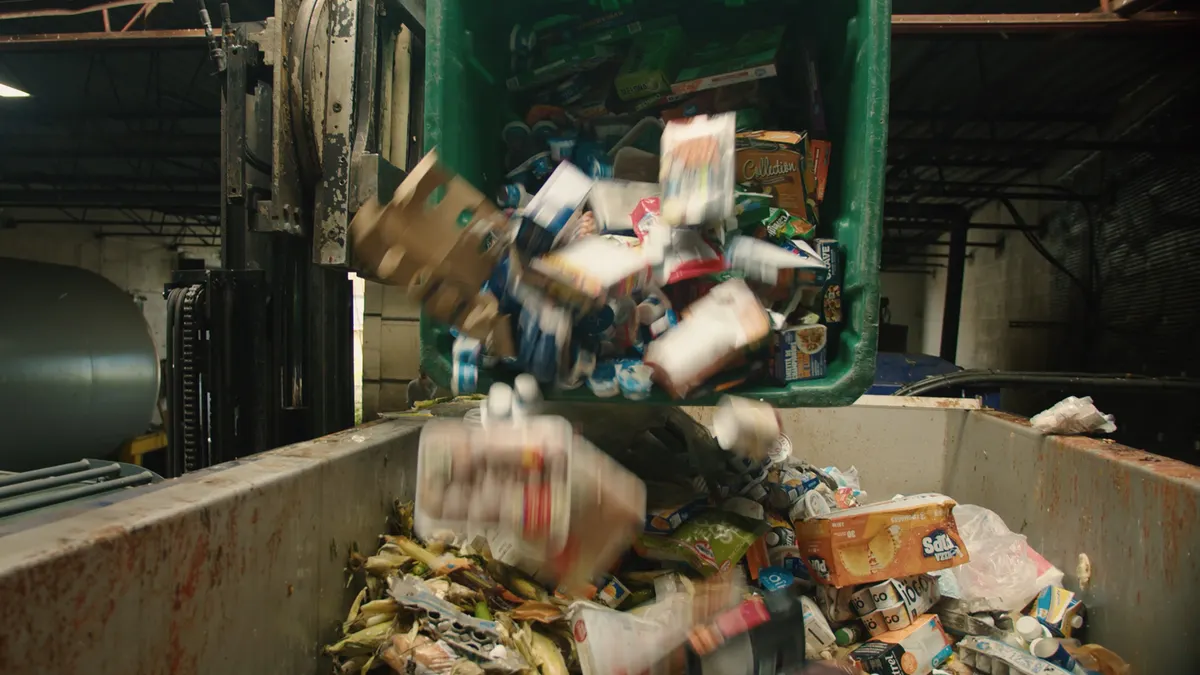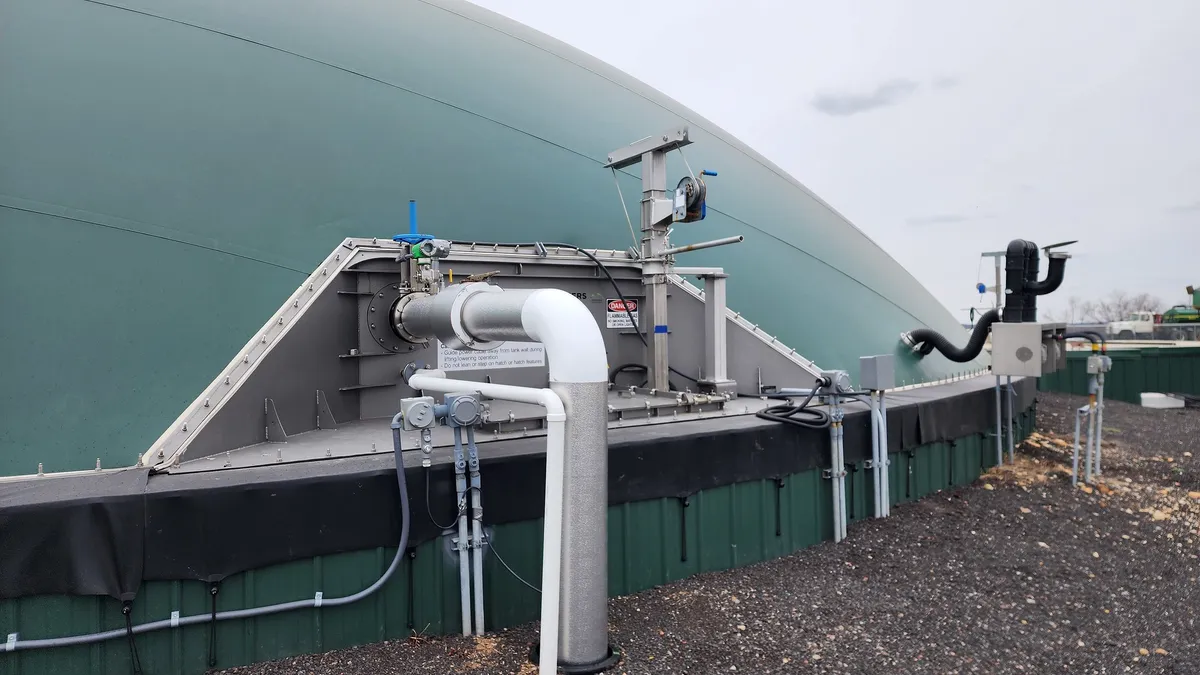Bioenergy Devco, now known as BTS Bioenergy, made few announcements in the months leading up to its May 27 rebrand. CEO Nick Thomas, who has spent much of the past year retooling the company’s strategy, said he hopes that will change moving forward.
"When you lose your way, and you’re not delivering, things do go quiet," Thomas, who joined the company in May 2024, said in an interview. "We’ve managed to have some success here, but everything we’re doing right now is orienting towards execution."
BTS Bioenergy’s European division has a long history. Founded in 1996, it has built more than 250 plants and secured dozens of patents. The company came to North America in 2019 and leveraged its expertise to build the Maryland Bioenergy Center, which opened in 2021.
But years later, that facility remains BTS’ only completed American digester project.
Surviving a tough industry
Anaerobic digestion has grown more slowly than developers hoped in the U.S. over the last several years, particularly among facilities that process food waste. Other digestion companies have set bold expansion goals in recent years and struggled to meet them, prompting multiple leadership changes. Bioenergy Devco itself received a more than $100 million commitment from Irradiant Partners in 2021 to build out a network of facilities, but little has come of that partnership.
In 2021, amid broad industry questions about the financial viability of anaerobic digestion technology, Bioenergy Devco founder Shawn Kreloff told Waste Dive that "the strongest [companies] have survived." Last year, he stepped away as CEO to take a role on the company’s board.
His replacement, Thomas, said BTS has room for improvement, and he’s brought in fresh leadership to assist with that growth. He joined the company from Meritage Midstream Services II, a Wyoming natural gas provider. In the following months, Thomas brought in other executives from Meritage and new CFO Jason Meek, who joined BTS from anaerobic digestion company PurposeEnergy.
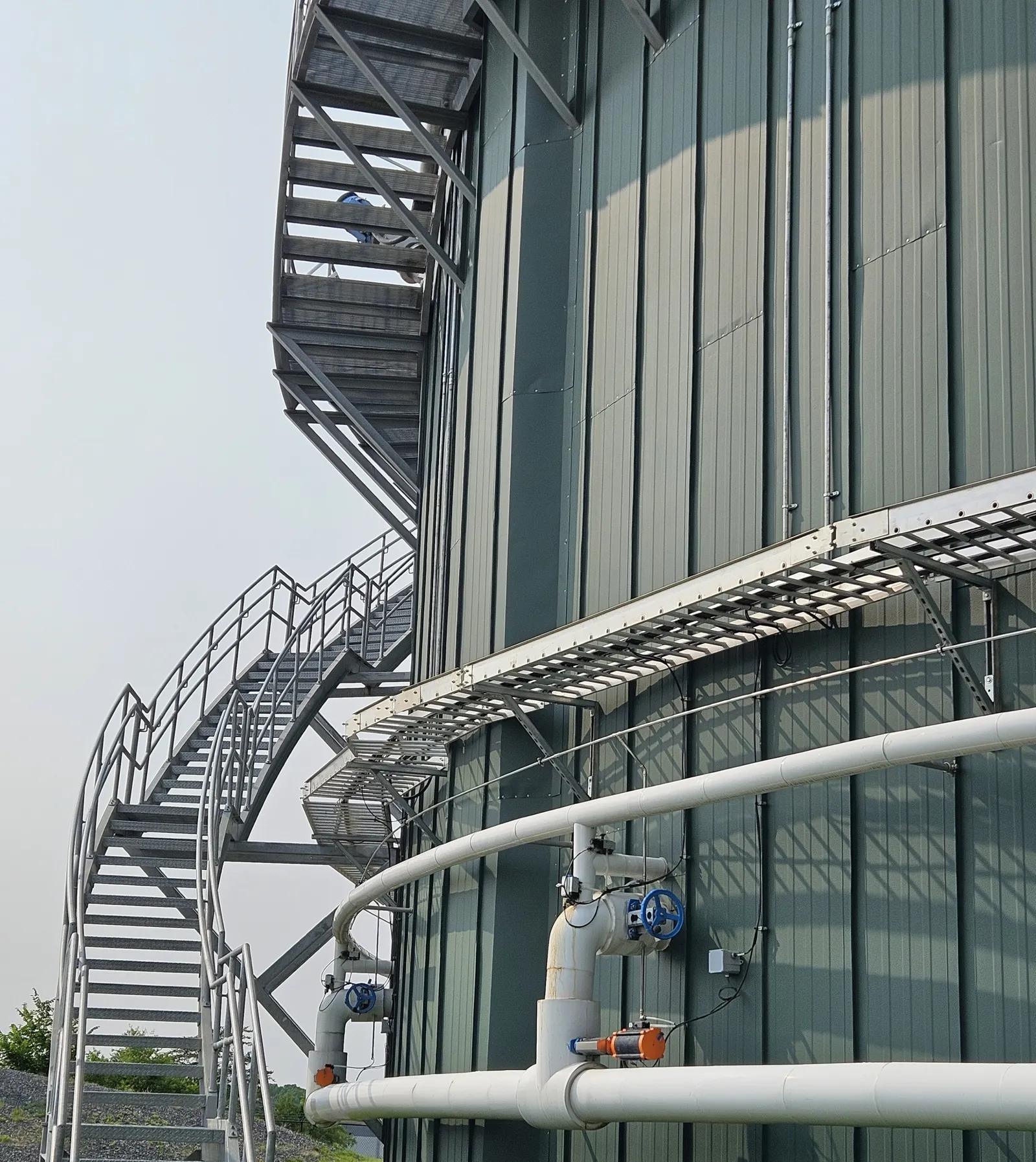
Over the past year, Thomas said he’s been learning about the anaerobic digestion industry and process, which produces methane and meshes with his experience in the natural gas sector.
Thomas is also reorienting BTS toward prospects that make the most economical sense for the company. That includes adding anaerobic digestion capacity to a composting facility in Delaware, which processes waste from the chicken industry. The company is hoping to break ground on that expansion next year. BTS is also in the advanced planning stages for a facility in Gainesville, Georgia, which the company anticipates breaking ground on later this year.
Notably, the company’s strategic focus does not include a proposed project in Long Beach, California. Last year, the City of Long Beach agreed to enter exclusive negotiations with Bioenergy Devco to build an organics recycling facility on the site of a decommissioned mass burn combustion facility run by Covanta, now Reworld.
Thomas said BTS couldn’t find a way to make the planned anaerobic digestion facility at the site generate sufficient revenue, and it agreed to part ways with the city earlier this year. Long Beach officials declined to comment on the matter, but in March they acknowledged that plans for the site were shifting due to market conditions.
A fresh outlook
Thomas said he's also been focused on maximizing the potential of the Maryland Bioenergy Center. The facility is capable of processing up to 125,000 metric tons of organic waste, which primarily comes from the food industry.
Around the time Thomas joined Bioenergy Devco, the company announced the Maryland facility had reached nameplate capacity. But a problem quickly arose: The county flagged deficiencies in the company’s wastewater pretreatment system, which was releasing high levels of substances such as ammonia, nitrogen and total phosphorus.
Last fall, the company scaled back the facility's throughput while it identified and installed new technology to reduce wastewater contamination. Thomas said the facility is now scaling back up.
The Howard County Department of Public Works confirmed in a statement that BTS “has made significant progress in upgrading their treatment systems.”
In addition to upgrading equipment at the site, BTS Bioenergy is also working to increase revenue from the Maryland Bioenergy Center. Thomas said the tipping fees BTS can charge there have doubled over the past year, and he expects they’ll continue to increase.
The facility likely won’t run at maximum capacity in the near future, Thomas said, and it has yet to reach its revenue ceiling due to high demand for organics processing capacity. The facility may also increase the proportion of its capacity locked up in longer-term feedstock contracts as operations stabilize, Thomas said.
“We're working a combination of both short- and long-term contracts, and that's great because it gives us the flexibility to optimize feedstocks and profitability,” Thomas said. “Once we get a better view of that combination, we'll work towards putting longer term contracts around those key and critical feedstocks.”
Bioenergy Devco received a $30 million investment from Maryland-based Hannon Armstrong Sustainable Infrastructure Capital in 2023, which Thomas said mainly went to improving the Maryland facility. BTS is looking to fundraise “pretty quickly” to fuel new projects moving forward, he said.
In addition, the company is open to other forms of internal growth mechanisms or acquisitions, depending on what’s available in the market, according to Thomas. He still believes BTS can be a “class leader” in the organics processing industry.
“There are a lot of people who are passionate about doing this kind of work,” Thomas said. “I’m not sure there’s anyone who’s really rose to the top. We want to be that.”



